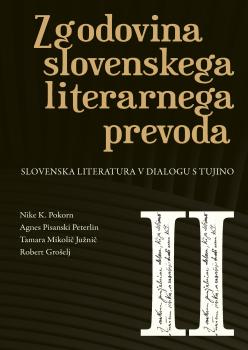Prevajanje Pirandella
Synopsis
The chapter analyses Slovene translations and reception of the works of Luigi Pirandello (1867–1936), one of the most important Italian authors in the first half of the 20th century, who was awarded the 1934 Nobel Prize in Literature. An introductory presentation of the author and his works (Pirandello is important as a novelist, a short story writer, and – foremost – as a dramatist) is followed by an overview of Pirandello’s Slovene translations and translators. Slovene translations of Pirandello’s works include his most important prose works, e.g., the novel Il fu Mattia Pascal [The Late Mattia Pascal] and different selections of his short stories, and plays, e.g., Enrico IV [Henry IV] and Sei personaggi in cerca d’autore [Six Characters in Search of an Author]; Pirandello’s poetry, on the other hand, has not been translated into Slovene. Pirandello’s works have been translated into Slovene by important Slovene translators, such as Božidar Borko, Niko Košir, Janko Moder, Silvester Škerl, and Srečko Fišer. A detailed translation analysis of Pirandello’s Slovene translations can be found in the case of his play Sei personaggi in cerca d’autore: Ivo Šorli’s translation (1942) is relatively inadequate; the translation by Janko Moder (1978) is based on Šorli’s translation – it shows similar mistakes and it sometimes differs significantly from the source text; Srečko Fišer’s translation (1985) simplifies the source text’s stylistic features, but its content is kept close to the original; Mario Uršič’s text (2001) is an adaptation of Fišer’s translation. Until the middle of the 20th century, the Slovene reception of Pirandello’s works was relatively superficial, but it became more thorough and comprehensive in the following years. The influence of Pirandello’s works on Slovene literature can be seen in some works by Vladimir Bartol and Ciril Kosmač, a more direct influence can be noticed in the play Kriminalna zgodba [Criminal Story] by Jože Javoršek.


